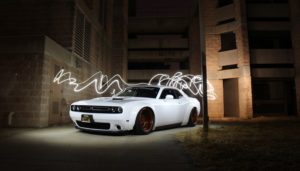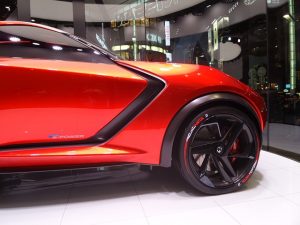What Makes a Touring Car

The British Tour Car Championship is now in full flow. We’ve already seen high speed, intense; back and forth battles as the drivers compete against the best in the world in order to win the series.
With that sort of action there’s no surprise that the championship is the most watched British motoring sport series around. The competition is viewed by millions on television each year and crowds attending the event have reached the 40,000 mark. With this sort of popularity it’s no surprise ITV have extended their deal to cover the event until 2022.
It’s crazy to think that your normal road car can be transformed into one of these quick and slick beasts. Unfortunately, once transformed these race cars are no longer road legal so the only chance you’ll get to see them in action is on the racetrack!
To the untrained eye these vehicles may look similar as they keep the same body type, regulations enforce that a race-car must have a common front subframe, rear subframe and a common design; this is where we can see the regularities stop.
The two cars were created for completely different reason, as a result many factors that the race team must change when revamping the road car. Many fans have always wondered the differences between their road car and its BTCC racing sister, and with being the sponsor of this year’s championships Kwik Fit have put together a neat infographic which highlights the key differences of a Road and Racing Car.
Driving Experience
A Race Car has its entire interior stripped; this is so it is light as possible and able to reach its highest potential max speed. This leads to the suspension of a Race Car being extremely tight. This is so that the driver can feel everything on the road and is able to analyse their racing environment, as a result they are able to make quick decisions when travelling at a great speed. Due to a racetracks smooth surface this wouldn’t be too bad for the driver, a rally car would definitely need a loose suspension for the amount of abuse and friction that is absorbed when racing. If the road car had this light suspension, the road would clatter you with all the bumps, potholes and uneven surfaces along the way.
Engine & Power
Teams often design and develop their own engines as long as stays within the regulations and guidelines given to them from the BTCC. All of these will be 2litre turbo charged engines with 350 BPH. Many of the road cars have a hybrid engine; this enables a smooth comfortable ride whilst saving on fuel! This could soon change within racing though, as Dunlop MSA British Tour Car Championship has announced that ALL of their competing cars will feature hybrid powertrain technology for the 2022 season.
With carbon emissions becoming a huge topic of relevance this is definitely a step in the right direction from the BTCC. What are your thoughts? Do you believe as time goes on we may see full hybrid race cars? Would this take anything away from the competition?






